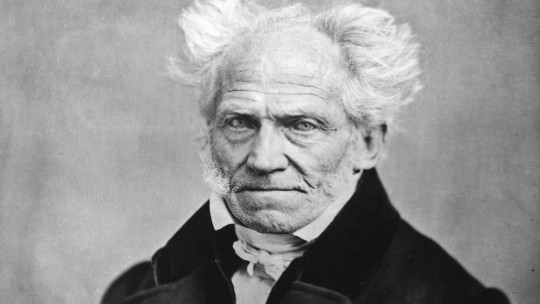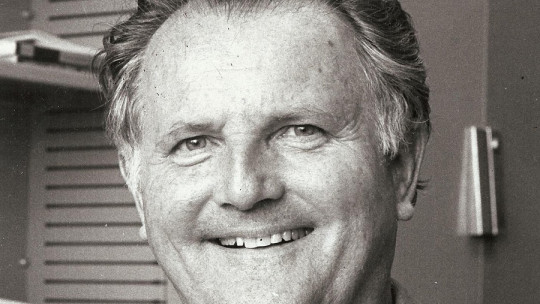
Arthur Schopenhauer was one of the most important German philosophers of the 19th century, providing a pessimistic vision, with a very original philosophical system of Kantian, Platonic and Buddhist nuances, unifying Western and Eastern metaphysics.
Here we will review his life through a biography of Arthur Schopenhauer in summary format.
Biography of Arthur Schopenhauer: his influence on philosophy
Arthur Schopenhauer’s life was spent mostly in Germany, living in a way quite contrary to the lifestyle he could have afforded taking into account his roots. His peculiar way of seeing human destiny, terribly pessimistic, together with his way of combining Western and Eastern philosophy have made him a German philosopher who does not leave anyone indifferent.
Arthur Schopenhauer born in Danzig, present-day Gdańsk, Poland, on February 22, 1788 He was the son of a fairly wealthy merchant, Heinrich Floris Schopenhauer, and his wife Johanna Henriette Trosenier who, years later, would be known for her novels and essays.
In 1793, when the city of Danzig became governed by Prussia, the Schopenhauer family moved to Hamburg There, little Arthur would receive a private education, focused above all on continuing his father’s career.
Later, Already attending a school specialized in business training, Schopenhauer would have the opportunity to expose himself to Enlightenment ideas which would set a precedent in their pessimistic and unflattering way of seeing the situation of man.
His destiny would change with the death of his father in April 1805. Upon the death of Mr. Schopenhauer, his son, who was no longer pressured to follow the family profession, chose to stay in Hamburg, while his mother and sister would move. to Weimar, where Johanna would have the opportunity to surround herself with an important circle of poets, attended by JW von Goethe and Christoph Martin Wieland, known as “the German Voltaire.”
While still in Hamburg, young Arthur would enjoy greater freedom, approaching the sciences and arts and definitively leaving aside the business career that interested him so little
In May 1807 he would leave the city and spend the next two years between the cities of Gotha and Weimar, where he acquired enough academic preparation to attend university.
In the autumn of 1809 he enrolled in medicine at the University of Göttingen and attended lectures on natural sciences. However, he started the second semester he switched to humanities, first concentrating on studying philosophers such as Plato and Kant
In the period from 1811 to 1813 he attended the University of Berlin, where he listened to philosophers such as JG Fichte and Friedrich Schleiermacher and, later.
It would be at this time that he would present his dissertation Über die Friday Wurzel des Satzes vom zureichenden Grunde (“On the fourfold root of the principle of sufficient reason”), with which he obtained a doctorate in philosophy at the University of Jena.
after college
During the winter of 1813 he remained in Weimar with his sister and mother. Thanks to Johanna’s poetic circle, Arthur would have the opportunity to meet Goethe and discuss philosophy with him
In that same winter, Friedrich Meier, who was a disciple of Johann Gottfried Herder, introduced him to knowledge about Hindu antiquity. Thus, Schopenhauer would know Eastern philosophies, such as that of Vedānta and the mysticism of Vedas. Later, he would combine these doctrines with those of Plato and Immanuel Kant, laying the foundations of his philosophical system.
Only a year later he would leave Weimar after a family argument. Schopenhauer did not feel comfortable with his mother’s frivolous lifestyle after the death of his father. It would be from this mother-child quarrel that Arthur would decide to move to Dresden, where he would remain until 1818, interacting with a group of writers belonging to the Dresdener Abendzeitung, a newspaper.
It would be at this time that Schopenhauer would finish his treatise Uber das Sehn und die Farben (“On Vision and Colors”), a treatise in which He supported the ideas about light promoted by Goethe and contrary to those expounded by Isaac Newton
His main work: The world as will and representation
The next three years would be dedicated to writing his main work, Die Welt als Wille und Vorstellung (“The world as will and representation”), published in 1819. This work is considered the clearest exponent of his staunch pessimism. It exposes, in several volumes, a theory about knowledge, philosophy of nature, aesthetics and ethics
We must understand, first of all, the idea of pessimism understood in the philosophical context. This pessimism argues that we live in the worst of all possible worlds, where pain is eternal and destiny is a constant attempt to achieve what we will never really achieve. There is no progress in humanity or civilization.
In the first volume, Schopenhauer talks about Kant. The world is a representation that is only understandable with the help of the constructs of human intellect, such as time, space and causality. But These constructs show the world only as an appearance, as a multiplicity of things, one after another, not as a set in itself a set that Kant originally saw as something that was not possible to know.
In the second book, Schopenhauer talks about the only thing we know in two ways: we know our body in appearance, that is, in its external form, but, at the same time, we know ourselves firsthand, knowing our will, something as well as our essence. The will, in itself, is a thing, it is unitary, impossible to change, which transcends beyond space and time and that it has no causes or purposes.
After the publication of this work, Schopenhauer did not develop a new philosophy. His subsequent work basically consisted of detailing in more depth what was stated in these four books, in addition to trying to have a more active university life, although with rather subtle success.
In March 1820, after touring Italy and having a successful dispute with Hegel, He obtained permission to give lectures at the University of Berlin Although she served as a member of the university for 24 semesters, only his first lecture was officially given. Hegel was more popular and overshadowed him, but cholera took his life years later, ending the “competition.”
Life in Frankfurt and recent years
Unlike Hegel, it seems that Schopenhauer was aware that Berlin was not a very recommendable city to live in considering the presence of the disease. It is because of that He decided to go to a healthier city, Frankfurt, which served as his home for his last 28 years
Already living in that city, he would give up his career as a university professor, living in a very secluded, ascetic way, absorbed by his studies focused on natural sciences. It is also in this period in which he began to form the personality by which we know him today, strict and with a somewhat old-fashioned style even for the time.
In 1836, after 19 years without publishing anything that attracted special attention, he published a short treatise, Uber den Willen in der Natur (“On Will in Nature”), in which he combined, in a very skillful way, his findings about the natural sciences that at that time were acquiring increasing popularity, relating them to his theory of will. In the preface to this treatise he showed his aversion to Hegel, who died in 1831, speaking openly of him as a charlatan.
During the last years of his life, he added some clarifications to his main works. He even made a third edition of “The World as Will and Idea,” which appeared in 1859, and in 1860 he made a second edition of his “Ethics.” Arthur Schopenhauer would die in Frankfurt am Main on September 21, 1860, due to cardiorespiratory arrest.
Schopenhauerian legacy
Schopenhauerian’s character and thought did not leave his contemporaries and later great thinkers indifferent, from the likes of Leo Tolstoy, Friedrich Nietzsche, Sigmund Freud, Carl Gustav Jung, Albert Einstein, Erwin Schrödinger, etc. He may seem somewhat surprising, but this philosopher has been widely read in the field of physics. In fact, Einstein described Schopenhauer’s thoughts as a kind of continuing consolation, despite his marked pessimism of human development.
On the other hand, he had his detractors. Ludwig Wittgenstein, although as a teenager he adopted Schopenhauer’s epistemological idealism, after studying it in more depth, he rejected his ideas, moving on to the conceptual realism of Gottlob Frege. Wittgenstein himself would be quite critical of Schopenhauer, describing him as a superficial thinker. Along with him, Bertrand Russell, in his “History of Western Philosophy”, would criticize Arthur Schopenhauer for considering him a promoter of asceticism but who did not carry it out.








